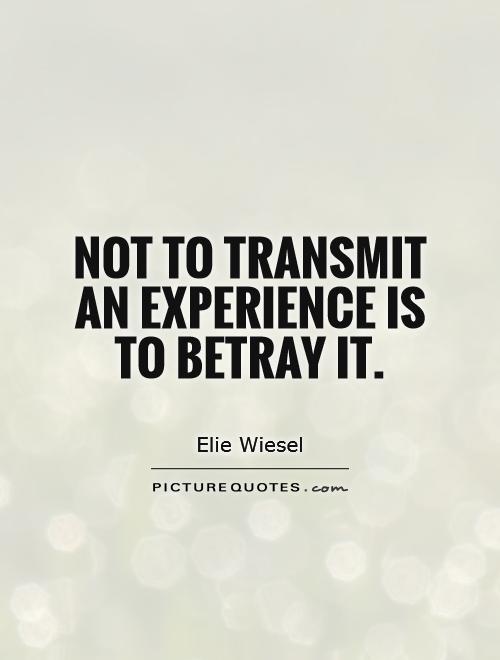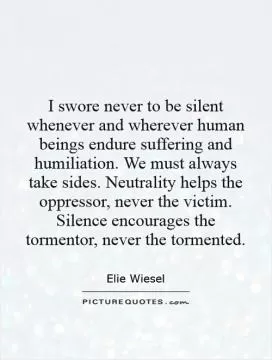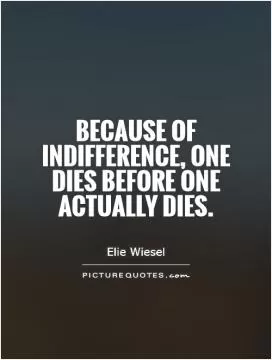Not to transmit an experience is to betray it

Not to transmit an experience is to betray it
Elie Wiesel, a Holocaust survivor and Nobel laureate, understood the power of bearing witness to one's experiences. Throughout his life, Wiesel dedicated himself to ensuring that the atrocities of the Holocaust were never forgotten, believing that to remain silent about such horrors would be a betrayal not only to the victims, but to humanity as a whole.Wiesel's most famous work, "Night," is a haunting account of his experiences in Auschwitz and Buchenwald concentration camps during World War II. In this memoir, Wiesel vividly describes the dehumanization, suffering, and loss that he and countless others endured at the hands of the Nazis. By sharing his story, Wiesel not only honors the memory of those who perished, but also challenges readers to confront the darkest aspects of human nature.
For Wiesel, the act of transmitting his experience was a form of resistance against the forces of hatred and indifference that allowed the Holocaust to occur. By bearing witness to the horrors he witnessed, Wiesel sought to ensure that future generations would never forget the consequences of unchecked prejudice and bigotry. In doing so, he believed that he was fulfilling a moral obligation to speak out against injustice and to prevent history from repeating itself.
Wiesel's commitment to sharing his story extended beyond his writing. He was a vocal advocate for human rights, speaking out against genocide, racism, and intolerance around the world. Through his lectures, interviews, and activism, Wiesel sought to inspire others to take a stand against injustice and to never remain silent in the face of evil.












 Friendship Quotes
Friendship Quotes Love Quotes
Love Quotes Life Quotes
Life Quotes Funny Quotes
Funny Quotes Motivational Quotes
Motivational Quotes Inspirational Quotes
Inspirational Quotes